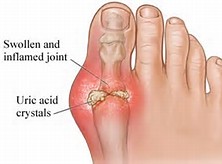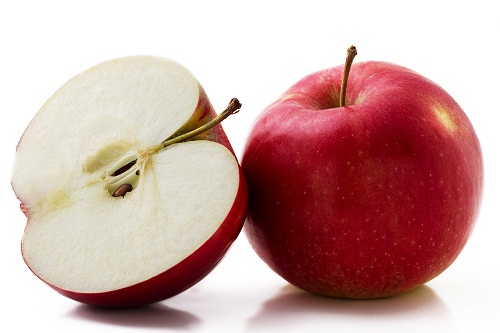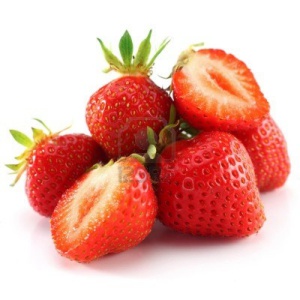Dangers of Uric Acid and How to Avoid it

Uric acid is a chemical substance that is generated in the body. Composed of nitrogen, oxygen, carbon, and hydrogen, the majority of uric acid dissolves in the blood and travels to the kidneys, where it is eliminated through the urine. However, we should be aware of the dangers of uric acid.
Excess uric acid can cause damage to the body, like the appearance of calculus and gout, since the excess of it in the blood makes it concentrate in places like the joints, forming crystals that cause pain and inflammation. That’s why it’s very important to control and reduce it if it gets too high.
The Dangers of Uric Acid
Anyone can be affected by high levels of uric acid, however, men are more susceptible. If you have a family history of gout, have a highly stressful life, or suffer from obesity, diabetes, or arterial hypertension, you could also be at a higher risk.
Harmful foods
Due to the dangers of uric acid in the body, it’s necessary to eliminate certain foods from your diet:
- Red meat
- Seafood
- Chitterlings
- Alcoholic drinks
- Sodas
You might also like:
Foods to help regulate your uric acid levels
Apples

Apples help fight against high levels of uric acid, thanks to their high water content. Its diuretic and antioxidant properties reduce arterial pressure. They also protect intestinal mucus, prevent cancer due to its photochemical substances, reduces cholesterol levels in the blood, prevents asthma and inflammatory illnesses like arthritis.
Artichoke
This vegetable has diuretic properties that help eliminate uric acid through the urine. In addition to this, it has other benefits like lowering cholesterol, combat high triglycerides, treat illnesses such as anemia, diabetes, and gout, and the calculus in the gallbladder.
Onions
Onions also help rid the body and prevent the increase of uric acid. Eating onions may also have beneficial results for the body, such as improving blood circulation, preventing thrombosis, and hardening of the arteries. They are a treatment for anemia due to its high iron content, as well as phosphorous and Vitamin E.
Thanks to the potassium that it contains, it helps eliminate excess liquids, fighting hypertension, gout, and kidney stones.
Cherries
Cherries have an effect on reducing uric acid levels, due to their anti-inflammatory and antioxidant properties. They also help prevent heart disease and cancer and help regulate sleep cycles. Cherries are rich in Vitamins E and C, as well as magnesium, iron, and fiber. They also help in the prevention of memory loss, reduces inflammation and the symptoms of arthritis and gout.
Strawberries

We recommend you also read:
Remember…
Everyone’s body contains uric acid; we need to take care of it so that it does not form in excess in our bodies since that could cause other health problems. Don’t forget “prevention is better than a cure”.
All cited sources were thoroughly reviewed by our team to ensure their quality, reliability, currency, and validity. The bibliography of this article was considered reliable and of academic or scientific accuracy.
-
Dalbeth, N., Phipps-Green, A., House, M. E., Gamble, G. D., Horne, A., Stamp, L. K., & Merriman, T. R. (2015). Body mass index modulates the relationship of sugar-sweetened beverage intake with serum urate concentrations and gout. Arthritis research & therapy, 17(1), 263.
-
Fang, J., & Alderman, M. H. (2000). Serum uric acid and cardiovascular mortality: the NHANES I epidemiologic follow-up study, 1971-1992. Jama, 283(18), 2404-2410.
-
Johnson, R. J., Nakagawa, T., Sanchez-Lozada, L. G., Shafiu, M., Sundaram, S., Le, M., … & Lanaspa, M. A. (2013). Sugar, uric acid, and the etiology of diabetes and obesity. Diabetes, 62(10), 3307-3315.
-
Juraschek, S. P., Miller III, E. R., & Gelber, A. C. (2011). Effect of oral vitamin C supplementation on serum uric acid: a meta‐analysis of randomized controlled trials. Arthritis care & research, 63(9), 1295-1306.
This text is provided for informational purposes only and does not replace consultation with a professional. If in doubt, consult your specialist.








